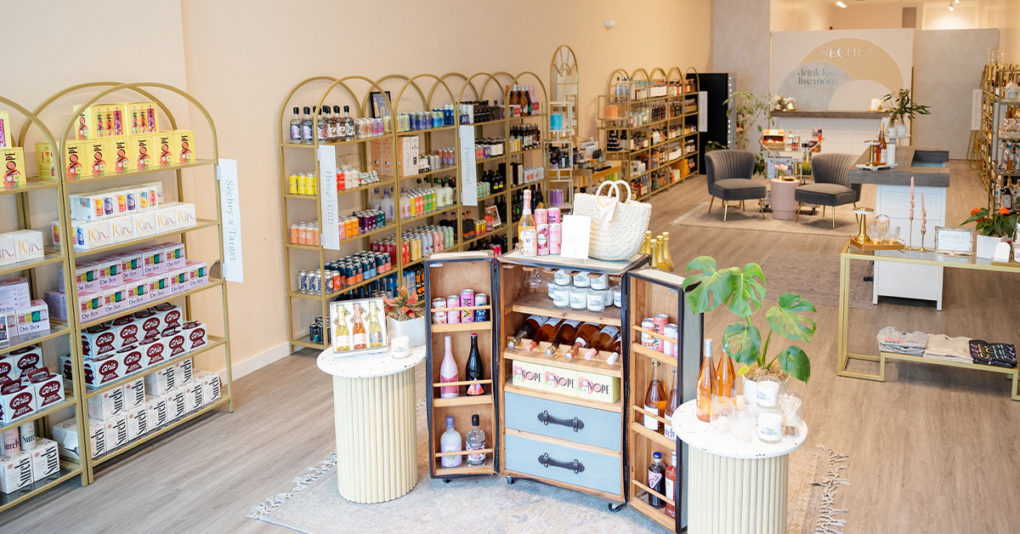As it looks to expand its own branded line of NA wines in retail this fall, no- and low-alc drinks “curator” Sèchey announced last week it has received an investment from adult beverage-focused private equity firm InvestBev. Terms of the deal were not disclosed.
The new funding comes in a mainstream coming out year for Sèchey, which was founded by CEO Emily Heintz in 2021 as a brick-and-mortar boutique for NA alcohol alternative drinks in Charleston, South Carolina and online retailer. In January, Sèchey partnered with Target to curate the mass retail chain’s NA alternatives set in stores, stocking brands selected by Sèchey (including De Soi, Kin Euphorics and Ghia among others) as well as the company’s private label dealcoholized wines sold under its own name.
Since then, Heintz said the Target partnership has quickly helped Sèchey to grow brand awareness and it is now preparing to roll out its branded wines in the New York market next month, to be facilitated by a distribution partnership with ProofNoMore.
“Our own brand was always part of our strategy, and launching at mass helped us bring the product to market faster,” Heintz told BevNET in a call today, adding that as Sèchey grows, the company aims to build both its own CPG line and its retailer and curation business simultaneously. “I believe it’s complementary to a multi-brand strategy that we can sit next to a lot of brands and brand partners.”
The deal also marks a deeper step into the NA alternatives category for InvestBev, which has previously invested in alcohol brands across categories such as Siempre Tequila, JuneShine and ecommerce platform Speakeasy Company.
Brian Rosen, founder and general partner of InvestBev, told BevNET that the firm had been looking to make a serious investment in an NA alternatives company for the past three years; although it has previously invested in cannabis social tonic brand Cann, Sèchey is the first in its portfolio to focus on “dryish” non-intoxicating products, as well as the first investment from the firm’s $150 million Fund V.
“I think that Emily and her team have gotten farther with less than everyone else we’ve seen,” Rosen said. “It could be less support, it could be less capital, the word ‘less’ can be anything. But to have a foothold into a mass merch retailer, to have a storefront, to understand the difference between DTC and in-person retail, all of those things really speak to me.”
The global market for low- and no-alc alternatives was valued at over $13 billion as of January, according to Boston Consulting Group and, per IWSR, the category is projected to grow at a compound annual growth rate of 7% between 2023 and 2027.
While the category continues to expand, the sector was rocked this year by the abrupt bankruptcy of another specialty NA retailer, Boisson. While that company reported revenue of around $10 million last year, it ultimately struggled to pay debts while juggling higher operational costs for its nine retail locations.
For Sèchey, however, the relationship with InvestBev provides the company with an established partner in the adult drinks sector, as well as access to its team. Rosen said he believes the brand, alongside other fast-rising businesses like NA beer maker Athletic Brewing Co., has “first mover advantage” and said the category is still “in the first inning of a nine inning game.”
“There has to be a time when a brand and an audience are ready for each other,” Rosen noted. “There’s been non-alc before, but the audience was never ready. And there’s been a non-drinking audience, but the brands were never great. Now is the time when those two things come together.”
“And so we’re willing to invest the time, the capital and the relationship into Emily and [her] team, to let this vision capitalize on two markets converging, and then eventually exit out when the time feels right.”
